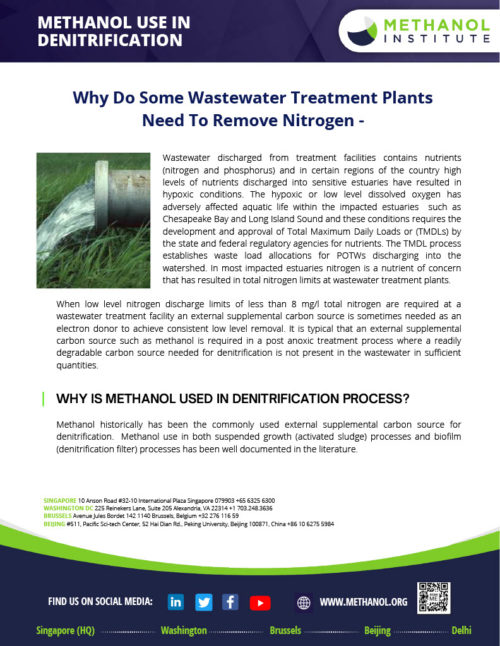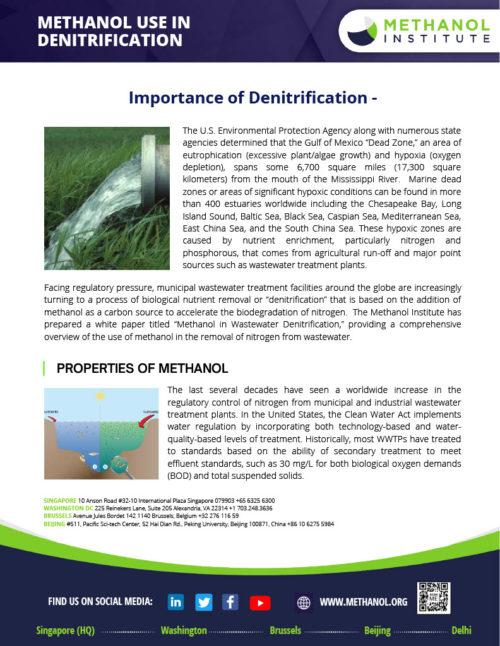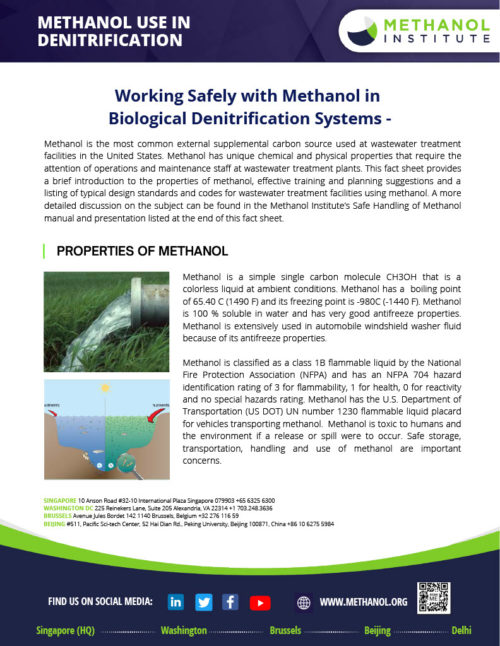How Does Methanol Improve Water Quality?
Methanol plays a crucial role in cleaning the water that is discharged by wastewater treatment facilities across the globe. Through a process known as “denitrification,” wastewater treatment facilities convert excess nitrate into nitrogen gas which is vented into the atmosphere rather than polluting sensitive watersheds.
Nearly 200 wastewater treatment facilities across the United States are currently using methanol in their denitrification process. In Washington, D.C., the Blue Plains Wastewater Treatment Facility, one of the largest in the country, continually meets, if not exceeds, national standards for nitrogen loadings in water each year by adding methanol to the treatment process.
Methanol Use in Denitrification
The Methanol Institute has prepared a white paper titled “Methanol in Wastewater Denitrification,” providing a comprehensive overview of the use of methanol in the removal of nitrogen from wastewater. Read about the denitrification process and its use around the world.
The Methanol Institute prepared a fact sheet discussing why do some wastewater treatment plants need to remove nitrogen.
Read about working safely with methanol in biological denitrification systems.




